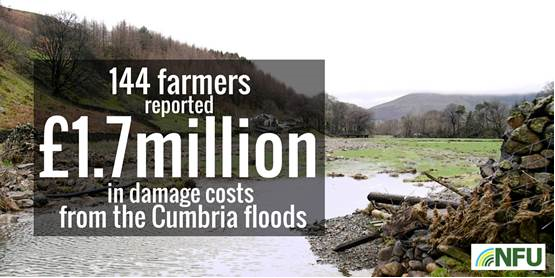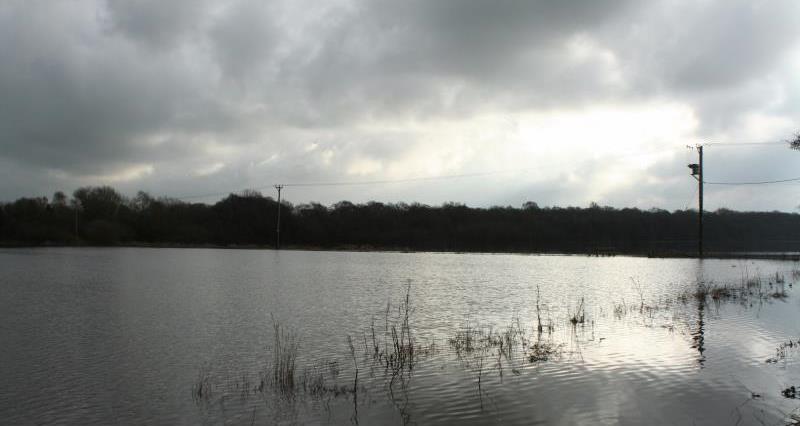The industry-led investigation put the losses experienced by 144 farmers at a collective total of £1.7 million. Defra has estimated that 650 Cumbrian farms were affected by storm damage.
The Cumbrian Farm Flood Action Group survey contacted 1,000 farmers, of whom 220 completed a detailed survey. Of those:
- 63% of those surveyed lost sections of watercourse bank sides
- 37% have lost walls
- 14% have lost hedgerows
- 38 farmers reported 701 sheep deaths between them and in addition 16 farmers reported a total of 189 sheep missing
- 53% reported river stone/gravel deposit and 22% have had land slips
David Hall, NFU North West Regional Director, said: “This survey shows us clearly the impact of the storms and what farmers face in terms of immediate recovery. In the longer term farmers face higher costs as stock will need to be fed with bought in fodder. It’s also highly likely that forage yields will be low this year.
“The NFU is working alongside others to ensure that farmers are supported through this challenging time. Policy and practices must be reviewed to find more resilient ways of managing flood risk. Our approach must be catchment based and look at all interventions resulting in sufficient and well placed flood alleviation actions across the area.”

Despite the difficulties related to persistently dreadful weather conditions over the festive period and beyond, a total of 15 Farmer Network coordinators, including a team from Westmorland Agricultural Society, made contact with farmers as part of the survey.
Data collection was funded by the Prince’s Countryside Fund, with analysis carried out by the NFU. The Cumbria Farm Flood Action Group includes: The Addington Fund, CLA, Cumbria Agricultural Chaplaincy, Farming Community Network, The Farmer Network, Federation of Cumbria Commoners, Forage Aid, Foundation for Common Land, the National Farmers Union, Mitchells Auction Co. Ltd, RABI and Westmorland Agricultural Society.
The NFU’s calls to action on flood resilience for government are:
- A planned approach to reduce the risk of flooding which looks at the whole catchment.
- An approach that can cope with more frequent volatile weather.
- Consultation with all partners to represent the needs of people affected by the floods.
